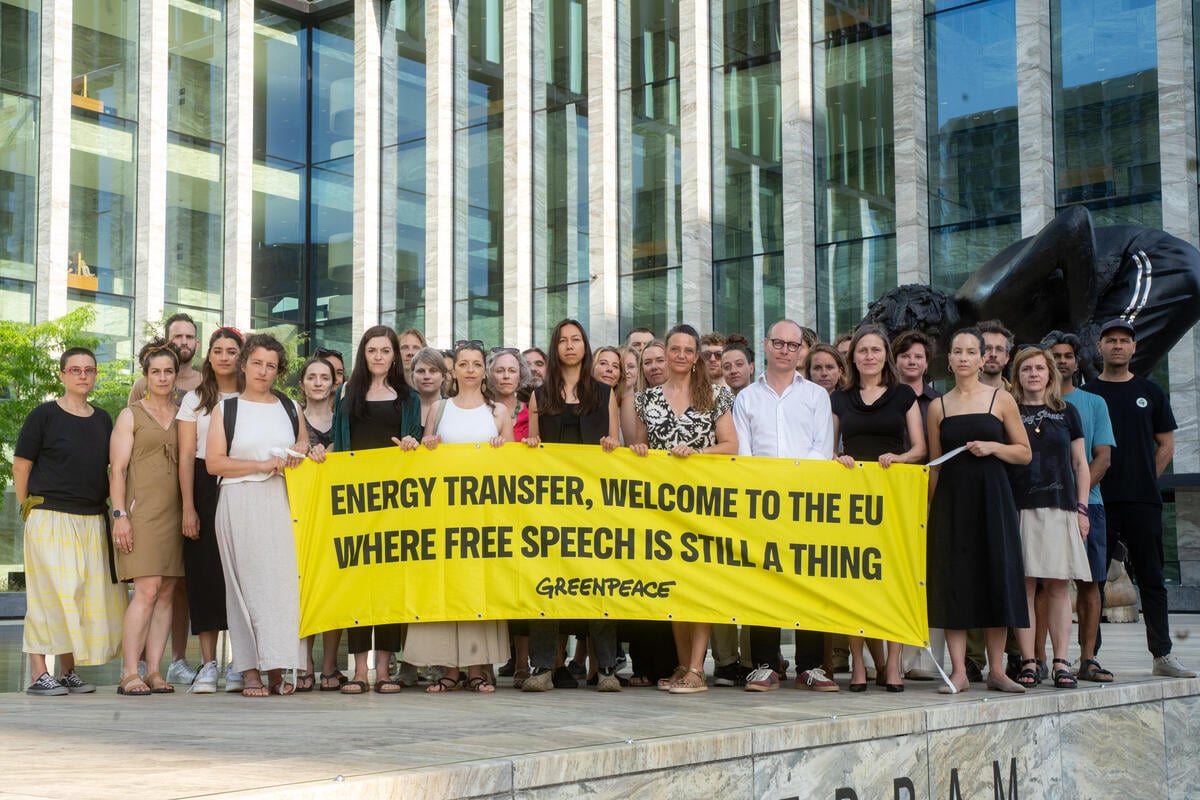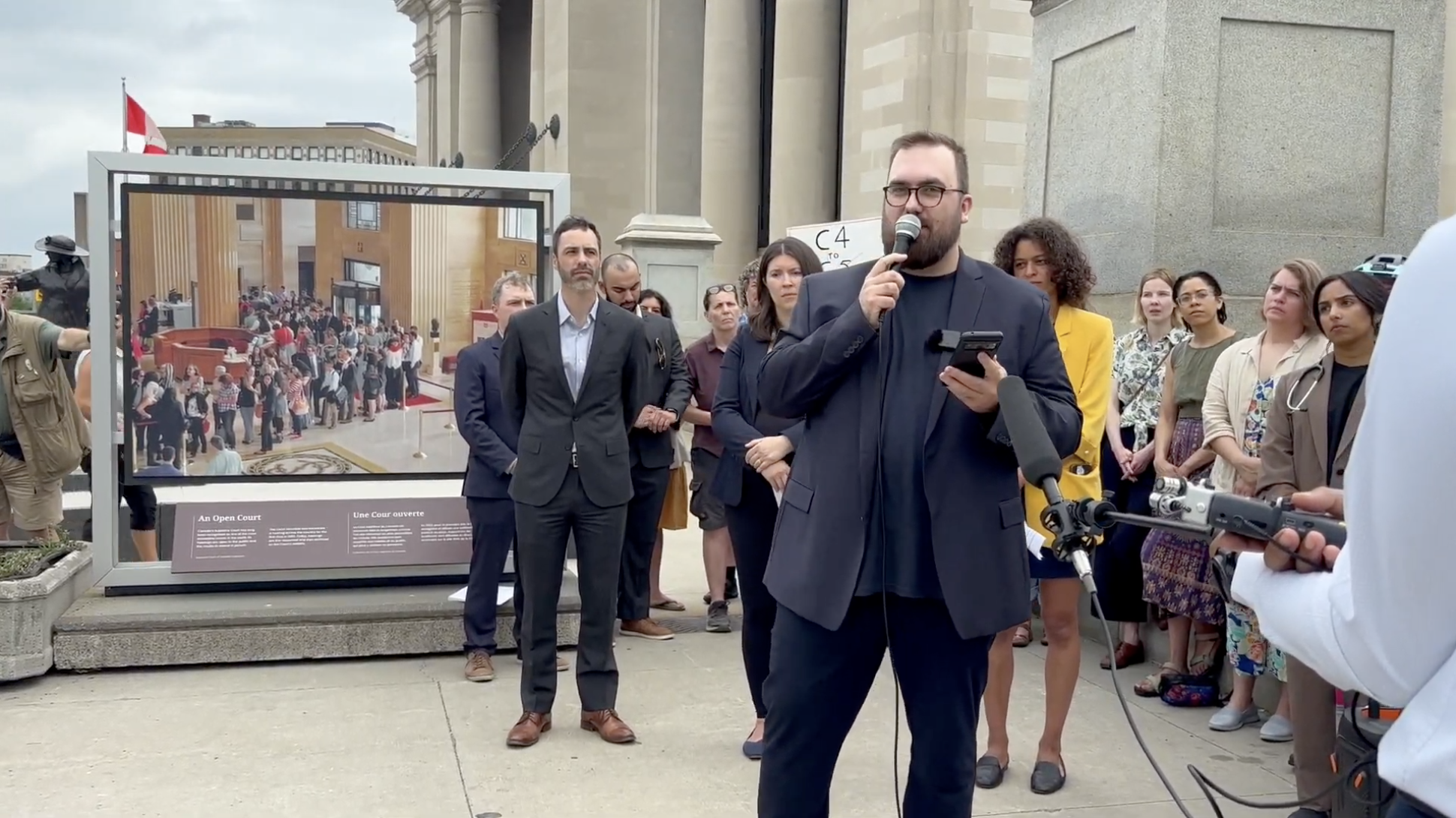Alberta Premier Jason Kenney has spent much of his political career trying to change public policy in the U.S. and Europe, so it is odd that he should be so outraged by the idea of people outside Canada caring about the climate impacts of oil development.
Kenney famously cut his political teeth on a campaign in California to overturn a law allowing gay partners to visit their dying partners during the 1980s AIDS epidemic (something he now says he regrets).
Yet the idea of cross-border advocacy (over cross-border pipelines) makes him angry enough to spend $30 million per year of public funds on a War Room to attack environmentalists (and the New York Times). Another $3.5 million has gone to a much-delayed Public Inquiry into Anti-Alberta Energy Campaigns that has held no public hearing and thus far produced only reports derided as “textbook examples of climate denialism” and conspiracy theorizing, while garnering headlines like USA Today’s Biden takes aim at fossil fuels, while Alberta, Canada, takes aim at journalists.
If we look back to Kenney’s time as one of Stephen Harper’s most powerful ministers, we see no concerns over spending massive amounts of money on advocacy campaigns to block climate policy outside our borders.
In 2012, Greenpeace Canada unearthed documents showing that the Harper government was running a “Pan-European Oil Sands Advocacy Strategy”. The campaign of diplomatic pressure and public relations spending had been launched in response to a demand from the Canadian Association of Petroleum Producers (CAPP) to “turn up the volume” on its existing efforts to block the adoption of a low-carbon fuel standard by the European Union. The documents identified the government’s “allies” (oil lobby groups, the National Energy Board and Alberta) as well as its “adversaries” (environmental and “Aboriginal” groups, as well as some media and renewable energy companies).
There was a similar initiative in the United States, where meeting minutes obtained by Greenpeace under Access to Information legislation show that federal officials and oil lobbyists jointly planned and conducted a campaign to block the spread of California’s low carbon fuel standard.
The federal government spent $40 million on pro-oil sands advertising in the 2013 budget alone, with $24 million of that spent outside Canada. Less public was the $4.5 million spent that year on a federally-sponsored advocacy campaigns to not just promote the oil sands, but to block climate policy in Europe and the United States.
These numbers – which don’t include the Canadian oil industry’s own international lobbying and public relations spending – dwarf international funding of climate advocacy in Canada. Over the last 13 years, for example, Greenpeace Canada has received a total of $2.9 million in grants from international foundations to support our work to limit oil sands expansion. That’s less than 2 percent of the organization’s total revenue over this time period and significantly less than what was received over the same time period from Albertans who support our work.
Greenpeace has never hidden the fact that we think climate change is a global problem that will require cooperation – and advocacy – across borders. That is why we work with other Greenpeace offices in more than forty countries around the world. In Canada, we focus on the oil sands because oil and gas production is our largest, and fastest-rising, source of greenhouse gas emissions, with the bulk of that growth coming from the oil sands.
We have made the case that it is irresponsible to rapidly expand the production of high-carbon oil in the midst of a climate crisis.
That question of responsibility is supposed to be a key question for Premier Kenney’s Inquiry, whose Terms of Reference say it is to investigate “attempts to directly or indirectly delay or frustrate the timely, economic, efficient and responsible development of Alberta’s oil and gas resources.”
There are at least a half dozen reports from governments, auditors and academic bodies challenging the claim that oil sands development has been “responsible.” A 2015 report from the Council of Canadian Academies, for example, concluded that “despite a half-century of development, many seemingly intractable problems remain: what to do with tailings, how to treat and discharge water safely, how to reduce the amount of GHGs, and how to reduce the footprint on the land and wildlife caused by mining and in situ production.”
By those standards, it could be argued that the foreign-funded effort to frustrate the responsible development of Alberta’s oil and gas development has been led by the Canadian Association of Petroleum Producers, aided and abetted by Jason Kenney.
Instead, the Inquiry has commissioned and published research denying that climate change is caused by burning fossil fuels and that anyone claiming to act out of a concern for the climate is a closet Marxist.
That same Inquiry has never attempted to speak with Greenpeace or even replied to the letters we have sent them. So we can perhaps be forgiven for wondering if the Inquiry’s true purpose is not to explore whether oil sands expansion has been responsible, but to smear its critics.
Including criticism of Jason Kenney’s role in campaigns to block climate policy in other countries.
This story was initially published on Medium



